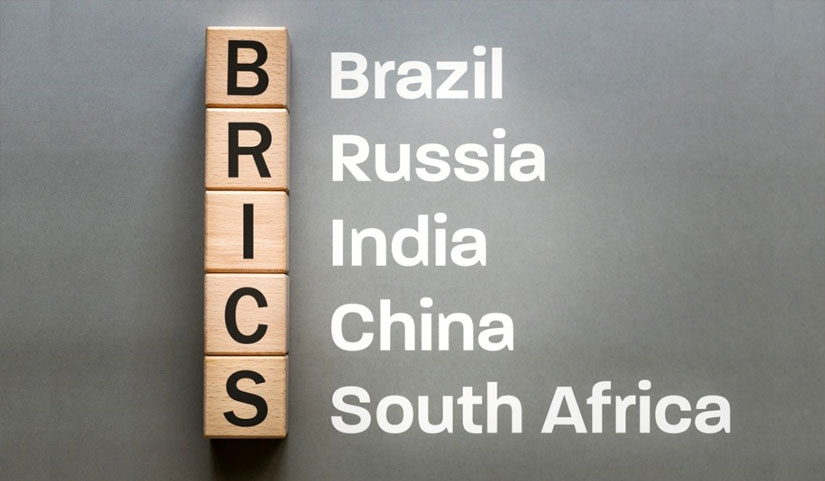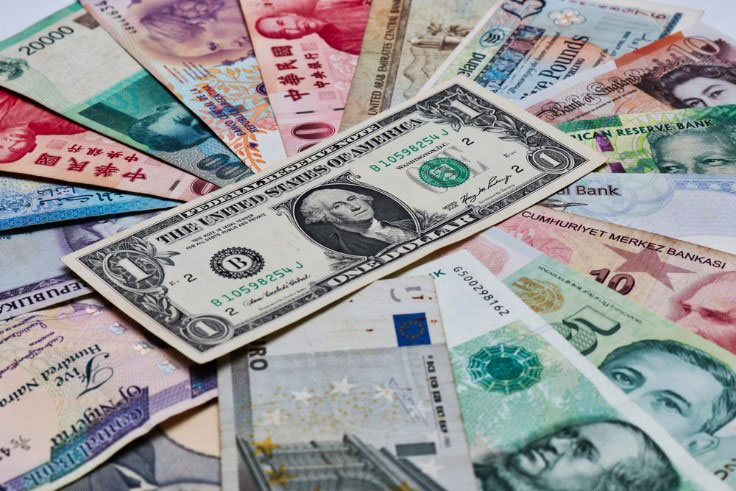Adding more BRICS to the Wall

If you don’t know about BRICS, you might want to pay attention. This global alliance between Brazil, Russia, India, China and South Africa is gaining momentum, with about 50 potential new candidates knocking at their door. (Not sure what that will do to their acronymic name; they’ll probably just continue to add letters like the LGBTQRSTUV…. folks.) What IS important, though, is what that means to Americans. Let’s break it down.
What is BRICS?
BRICS is an informal grouping of emerging market countries that seek to establish deeper ties between their nations and cooperate on economic expansion, including trade. The countries act as a balance against traditional Western influence, seeking to depend on each other for growing influence in the world.
The BRICS nations encompass over 40% of the world’s population and were originally identified for the purpose of highlighting investment opportunities. However, since 2009, they have increasingly formed into a more cohesive geopolitical union, with their governments meeting annually at formal summits and coordinating multilateral policies. Their ultimate goal is to level the global playing field, and it’s working.
Threat to America?
 The main threat BRICS poses to the US is the potential reduction in the ability to use our economic power. The growth of BRICS could cause a decline in the US dollar’s dominance as a global reserve currency. Calls for a global shift away from dollar dominance are not new, nor are they unique to BRICS, but experts say recent geopolitical shifts and growing tensions between the West and Russia and China have brought them to the forefront.
The main threat BRICS poses to the US is the potential reduction in the ability to use our economic power. The growth of BRICS could cause a decline in the US dollar’s dominance as a global reserve currency. Calls for a global shift away from dollar dominance are not new, nor are they unique to BRICS, but experts say recent geopolitical shifts and growing tensions between the West and Russia and China have brought them to the forefront.
Does this mean BRICS will eventually create their own currency to displace the US dollar? South Africa’s BRICS ambassador, Anil Sooklal, said the goal is less about replacing the dollar than giving the world more choices. He recently shared with Aljazeera, “BRICS is not anti-West. We are not in competition, nor are we against the dollar. But what we are against is the continued dominance of the dollar in terms of global financial interactions.”
Most economists and experts agree that the U.S. dollar will remain the currency leader in the foreseeable future, since to change that would require a total dismantling of financial systems already in place. However, even if BRICS were to ultimately create a new currency, it may work similarly to the Euro, which has not seriously challenged the dollar’s dominance.
BRICS is Gaining Momentum
It appears that there is not an imminent threat to the US dollar position, however, more and more countries are hoping to board the BRICS train, which is why we definitely need to keep this on our radar. Just this past month, BRICS extended membership invitation to the following countries: Argentina, Egypt, Ethiopia, Iran, Saudi Arabia and the United Arab Emirates. Their membership would take place on Jan. 1, 2024. More than 20 countries have formally applied for BRICS membership, including the six above, with other major African players, such as Nigeria and Ghana expressing interest.
Brazilian leader Luiz Inácio Lula da Silva recently stated in a press briefing, “Now the BRICS is going up to 37% of the world’s GDP in terms of its purchasing power, and 46% in terms of the world population. BRICS will continue [being] open to new members.” This is a movement heating up due to some changing tones of members regarding their relationship with the West. Commercial and diplomatic tensions have risen between China and the U.S., while Russia is under a deluge of Western sanctions for its invasion of Ukraine.
It's not surprising that we are witnessing a shift of attitudes toward the West due to the many geo-political events and changing policies we hear about on an almost daily basis. Our current leadership is weak, which opens up a world of opportunity for those who would love to swoop in and change the rules of the game, or the game itself.
To quote a line from G. Michael Hopf's post-apocalyptic novel “Those Who Remain”:
“Hard times create strong men, strong men create good times, good times create weak men, and weak men create hard times.”
Our Actions Make a Difference
Just as in Newton’s Third Law of Motion our actions, or sometimes even more importantly, our lack of actions, cause an equal and opposite reaction. We need to take action where we can, and for most of us, that means using our right to vote. We need to vote out the weak and corrupt, and vote in actual patriots who put America first. We need to vote in strong men and women who embrace our constitution and values, and who honor the sacrifices of the many heroes who have died before us to help build this amazing country. We need to vote out the many current leaders who have disgraced our country and helped to create a negative perception, becoming a laughingstock on the world stage. The more apathetic we become, the more we risk losing our freedoms, which in turn, opens the floodgates to the formation of more groups like BRICS…and other coalitions with potentially nefarious agendas that give rise to Marxist and tyrannical agendas.
JOIN MAMMOTH
Shop your values and save!
Categories
Popular Tags
Archives
- February 2025 (2)
- January 2025 (11)
- December 2024 (10)
- November 2024 (8)
- October 2024 (7)
- September 2024 (6)
- August 2024 (6)
- July 2024 (3)
- June 2024 (1)
- May 2024 (2)
- April 2024 (3)
- March 2024 (7)
- February 2024 (9)
- January 2024 (6)
- December 2023 (5)
- November 2023 (8)
- October 2023 (5)
- September 2023 (4)
- August 2023 (8)
- July 2023 (5)
- June 2023 (5)
- May 2023 (6)
- April 2023 (5)
- March 2023 (3)
- February 2023 (2)
- January 2023 (5)
- December 2022 (6)
- November 2022 (7)
- October 2022 (2)